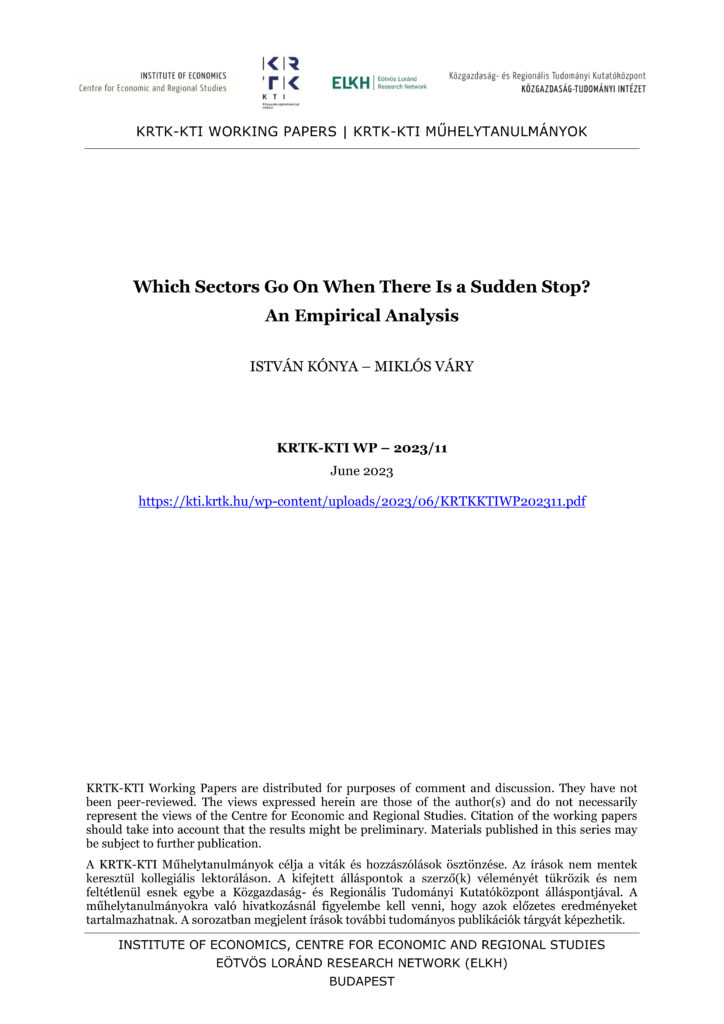This paper analyzes the dynamics of sectoral Real Gross Value Added (RGVA) around sudden stops in foreign capital inflows. We identify sudden stop episodes statistically from changes in gross capital inflows from the financial account, and use an event study methodology to compare RGVA before and after the start of sudden stops. In the baseline specification, we estimate changes in the growth rate of sectoral RGVA during sudden stops and in the few quarters following them. In an additional exercise, we analyze deviations from the sectors’ long-run growth path. Our findings indicate that: (i) tradable sectors, especially manufacturing, face larger damages during sudden stops than nontradable sectors, (ii) but they also lead the recovery after recessions that accompany sudden stops on impact, partly due to the fact that they benefit from the depreciation of the domestic currency that occurs during sudden stops, (iii) construction and professional services are the most seriously hurt nontradable sectors during sudden stops, while information and communication, and financial services grow slower even in the aftermath of the events than before their onset. However, this slowdown only constitutes a return to their long-run sectoral growth paths. Overall, our results suggest a prolonged reallocation of economic activity away from service sectors, towards the production of goods. This is consistent with a traditional view of the role of tradable and nontradable sectors in a sudden stop episode.
Publikációk / Which Sectors Go On When There Is a Sudden Stop? An Empirical Analysis
2025
Sep
18
M
T
W
T
F
S
S
1
2
3
4
5
6
7
8
9
10
11
12
13
14
15
16
17
18
19
20
21
22
23
24
25
26
27
28
29
30
1
2
3
4
5
Next month >
a
2025
Sep
18
M
T
W
T
F
S
S
1
2
3
4
5
6
7
8
9
10
11
12
13
14
15
16
17
18
19
20
21
22
23
24
25
26
27
28
29
30
1
2
3
4
5
Next month >


